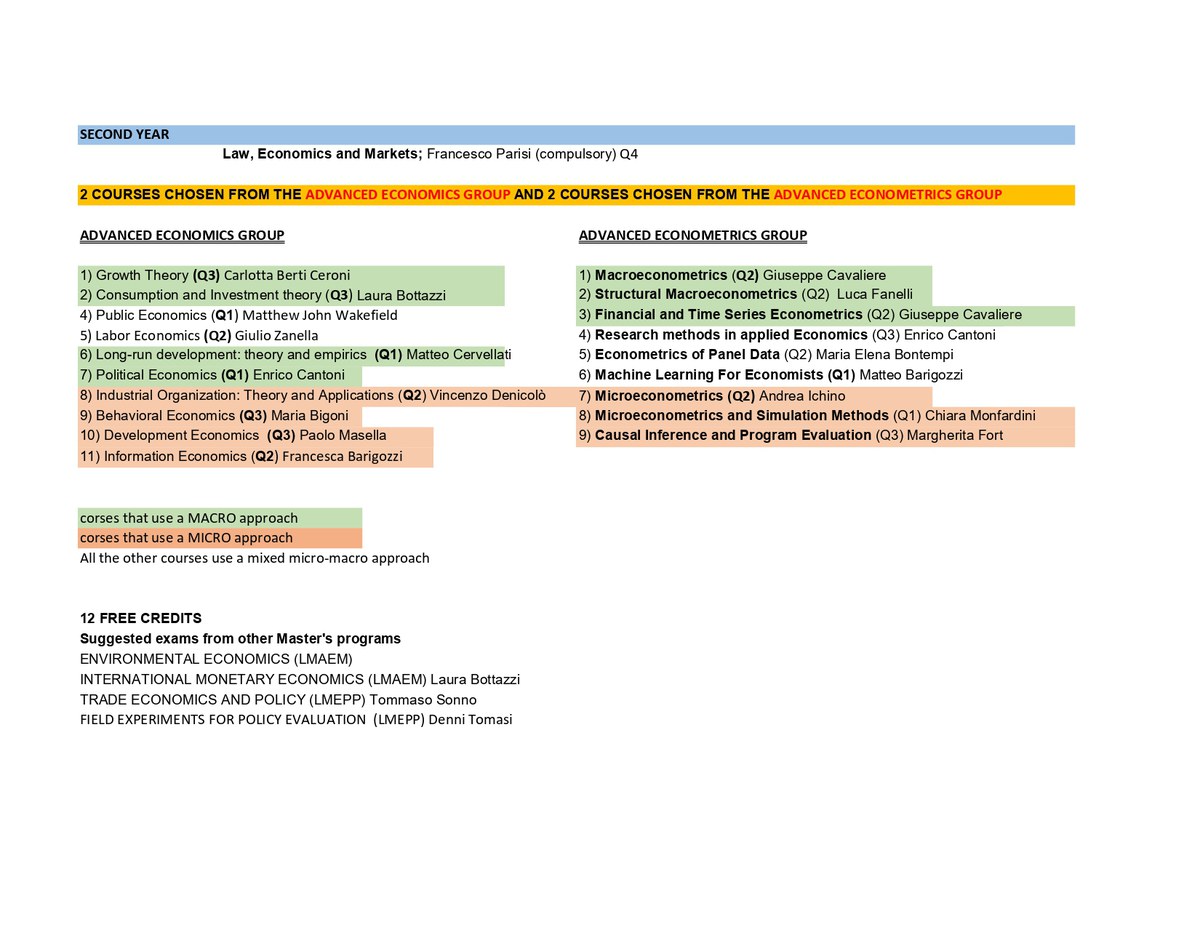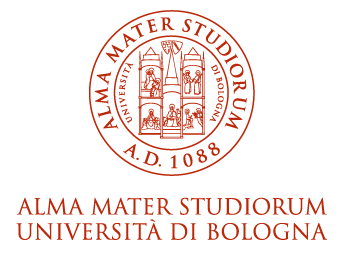LM(EC)2 allows you to shape your study programme so that it matches your interests and ambitions. In the first year all your modules are set for you and mandatory. In the second it is requested that you make some choices, and pick optionals and electives. To do that in your second year you will have to fill in your individual study plan on StudentiOnline. Your study plan needs to be filled and submitted within certain periods in the year, and anyway before sitting the exams that you will include in it.
To fill it in, you will have to be in line with your tuition fee payments and, if you are a non-EU citizen, hold a valid residence permit.
Students can complete the Study Plan on Studenti On-Line ("Study Plan" button) in the following two periods:
1st period: from 7th October to 7th November 2025
- from 1st to 12th December 2025 exclusively for first-year students enrolled on a conditional basis
2nd period: from 12th January to 20th February 2026
no exceptions to these intervals are possible
1. 12 ECTS to be chosen between 32682 Econometrics A (I.C.) and 32683 Econometrics B (I.C.).
Students can, in their second year, choose the course (either B2154 MICROECONOMETRICS or B2155 MACROECONOMETRICS) not followed in the first year.
B2154 MICROECONOMETRICS (in 32682 Econometrics A (I.C.) ) is suggested if students plan to attend in their second year 90350-Causal Inference and Program Evaluation and B2162-Microeconometrics and Simulation Methods.
B2155 MACROECONOMETRICS (in 32683 Econometrics B (I.C.)) is suggested if students plan to attend in their second year B2164-Financial and Time Series Econometrics and 90349-Structural Macroeconometrics.
It is not formally necessary to take or even pass certain exams in order to choose specific elective modules. However, for obvious learning reasons, it is strongly recommended to follow the proposed sequence of courses and exams.
2. 12 ECTS to be chosen between B2156 Macroeconomics A (I.C.) and B2158 Macroeconomics B (I.C.).
In both integrated courses, students will learn the fundamentals of advanced macroeconomics in the course Macroeconomics (88065 and 59691). The second module can be chosen between B2157-Growth Theory and B2160-Consumption and Investment Theory.
Students planning to attend in their second year B2169 - Long-Run Development: Theory and Empirics, may select in their first year the I.C. B2156 Macroeconomics A because Growth Theory provides useful knowledge.
Here below, the table of the learning activities of the second year may be helpful to complete a study plan that focuses preferentially on either the Micro or Macro approaches characterising the second year courses.

In your second year only you will have to choose between
You will need to spend 12+ CFU in electives, taking them during your first or your second year, or both. You may choose between modules and an internship, or a combination of both.
a) Elective courses suggested by the programme: courses activated within LM(EC)2.
b) Transferable skills: courses available to all students of Unibo to acquire the basic knowledge and abilities required to translate competences into suitable behaviour for organizational purposes. Important! Transferable Skills have a set number of places available - please try to select them in time if interested. FAQ in Transferable skills courses
c) Other elective courses: optionals (namely courses from sections 2. and 3. in the "First Year" section of the Course Structure Diagram) that you had not previously selected. To insert these courses please click on the arrow next to Insegnamento a scelta su CORSO 5977 - ECONOMICS and ECONOMETRICS.
d) Other elective courses of the University of Bologna: if you wish, you may ask to include, as elective, courses from other degree programmes, as long as they have some consistency with the general goals of LM(EC)2. In such case, please click on the arrow next to Insegnamento a scelta su ATENEO 010 - UNIVERSITA' DI BOLOGNA, insert the chosen course(s) and wait for the Director's approval. NB: you will need these non-LM(EC)2 choices to be approved before actually taking them! We recommend you insert sensible options, consistent with LM(EC)2, from LM taught in English. The request will be evaluated by the Programme Director and Board, then, if approved, added to your SOL records online.
When and if offered, you may also include specialized seminars, which need to be individually selected (and that are not part of the “seminars” activity as per above).
The minimum number of credits to spend in electives is 12, but you can add more if you wish (no more than 24 extra, therefore up to 36 CFU). All exam grades, including those from modules exceeding the 12 CFU needed, will average up and count for the final grade.
Teaching activities choice form docx
[ .docx 15Kb ]
The form must be correctly filled out in all its parts and sent from the institutional email address to didatticascaravilli.studenti@unibo.it (the form must be submitted in .pdf format).
Elective activities for students of other Departments
[ .pdf 102Kb ]
